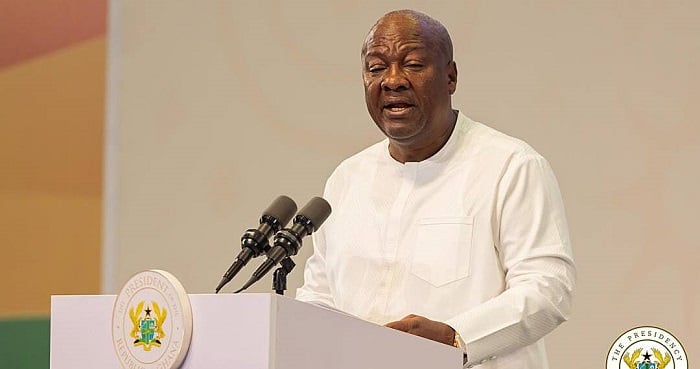President John Dramani Mahama’s fervent plea for immediate, youth-driven action against the escalating HIV infection rates among Ghana’s youth serves as a stark reminder of the persistent challenges in combating the epidemic. His characterization of the trend as “deeply worrying” and entirely preventable underscores the gravity of the situation and highlights the urgent need for a comprehensive and impactful response. Speaking at the launch of Ghana’s 2025 Voluntary National Review of the Sustainable Development Goals, President Mahama pointedly identified communication failures, persistent stigma, and limited access to sexual health education as key factors contributing to the rise in HIV infections among young people. His call for a generational shift in approach, emphasizing a youth-led campaign with robust institutional, familial, educational, and media support, signals a recognition that traditional methods have proven inadequate and a new paradigm is essential.
The President’s emphasis on youth leadership in addressing this critical public health issue reflects a forward-thinking strategy that aims to empower the very population most affected by the epidemic. By placing young people at the forefront of the campaign, the initiative seeks to create a more relatable and effective message, dismantling the barriers of stigma and fostering open, honest conversations about sexual health. The call for support from educational institutions, healthcare providers, families, and media organizations reinforces the importance of a multi-pronged, collaborative approach that permeates all levels of society, ensuring that the message of prevention and empowerment reaches every corner of the nation.
The inadequacy of mere awareness campaigns was a central theme in President Mahama’s address. He stressed that while raising awareness is a necessary first step, it is insufficient on its own to address the root causes of the problem. Empowering young people to make informed choices about their sexual health requires providing them with comprehensive sexual health education that goes beyond basic information about HIV transmission. It necessitates creating an environment where young people feel comfortable discussing their concerns, accessing appropriate healthcare services, and making decisions that protect their wellbeing without fear of judgment or discrimination. This empowerment model underscores the importance of agency and self-efficacy in driving positive behavioral change.
President Mahama’s appeal comes at a crucial juncture, with only five years remaining to achieve the ambitious targets set by the United Nations’ 2030 Sustainable Development Goals. His call to action signals a renewed commitment to tackling one of Ghana’s most pressing public health challenges and underscores the urgency of implementing effective strategies to curb the spread of HIV among young people. The President’s remarks serve as a catalyst for a national conversation about not only the immediate response to the current crisis but also the long-term strategies required to ensure a future where all Ghanaians, especially the youth, have the knowledge, resources, and support they need to protect themselves from HIV.
The interwoven challenges of communication breakdowns, persistent societal stigma, and limited access to comprehensive sexual health education contribute to the ongoing struggle against HIV/AIDS. By placing young people at the helm of the campaign to combat the epidemic, President Mahama’s vision seeks to break down these barriers, fostering open dialogue and empowering the younger generation to take control of their sexual health. The inclusion of families, educational institutions, healthcare providers, and media outlets in this initiative underscores the critical need for a collaborative and comprehensive approach that permeates all levels of Ghanaian society, ensuring that the message of prevention and empowerment reaches every corner of the nation.
Ultimately, the success of this youth-led campaign hinges on fostering a culture of open communication, destigmatizing HIV/AIDS, and providing young people with the knowledge and resources they need to make informed decisions about their sexual health. The President’s call to action serves as a rallying cry for a collective effort to stem the tide of HIV infections among Ghana’s youth, ensuring that they have the opportunity to live healthy, productive lives, and contributing to a healthier future for the nation as a whole. By prioritizing youth empowerment and focusing on comprehensive prevention strategies, Ghana can make significant strides towards achieving its Sustainable Development Goals related to health and wellbeing, and create a brighter future for generations to come.














